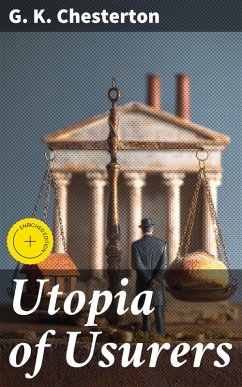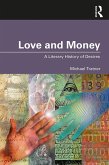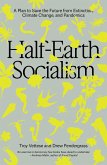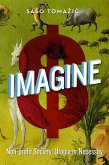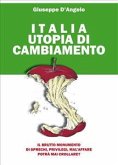In "Utopia of Usurers," G. K. Chesterton presents a provocative critique of modern capitalism, where he argues against the prevailing financial systems and their moral implications. Employing his trademark witty and paradoxical style, Chesterton fuses social commentary with philosophical musings, ensuring the prose is as engaging as it is enlightening. Written in the early 20th century, the book reflects a period of intense socio-economic upheaval, drawing on contemporary debates about the nature of wealth, society, and ethical responsibility, positioning Chesterton as a voice of reason amid rising industrialism. G. K. Chesterton (1874-1936), a prolific writer, philosopher, and social critic, gained prominence as a defender of traditional values in the face of increasing modernization. Chesterton'Äôs deep Christian faith and belief in social justice greatly influenced his worldview, motivating him to challenge the moral shortcomings of a money-centered society. His intuitive grasp of human nature and its complexities lends remarkable depth to his critique, making the arguments not only relevant in his time but incredibly prescient. "Utopia of Usurers" is an essential read for anyone intrigued by the intersections of economics, ethics, and social commentary. Chesterton'Äôs incisive insights compel readers to reflect on their own societal roles, advocating for a more humane approach to economic systems that transcend mere profitability. This book is a must-have for students, scholars, and anyone seeking to engage with the moral challenges of commerce in any age.
Dieser Download kann aus rechtlichen Gründen nur mit Rechnungsadresse in A, B, BG, CY, CZ, D, DK, EW, E, FIN, F, GR, H, IRL, I, LT, L, LR, M, NL, PL, P, R, S, SLO, SK ausgeliefert werden.

